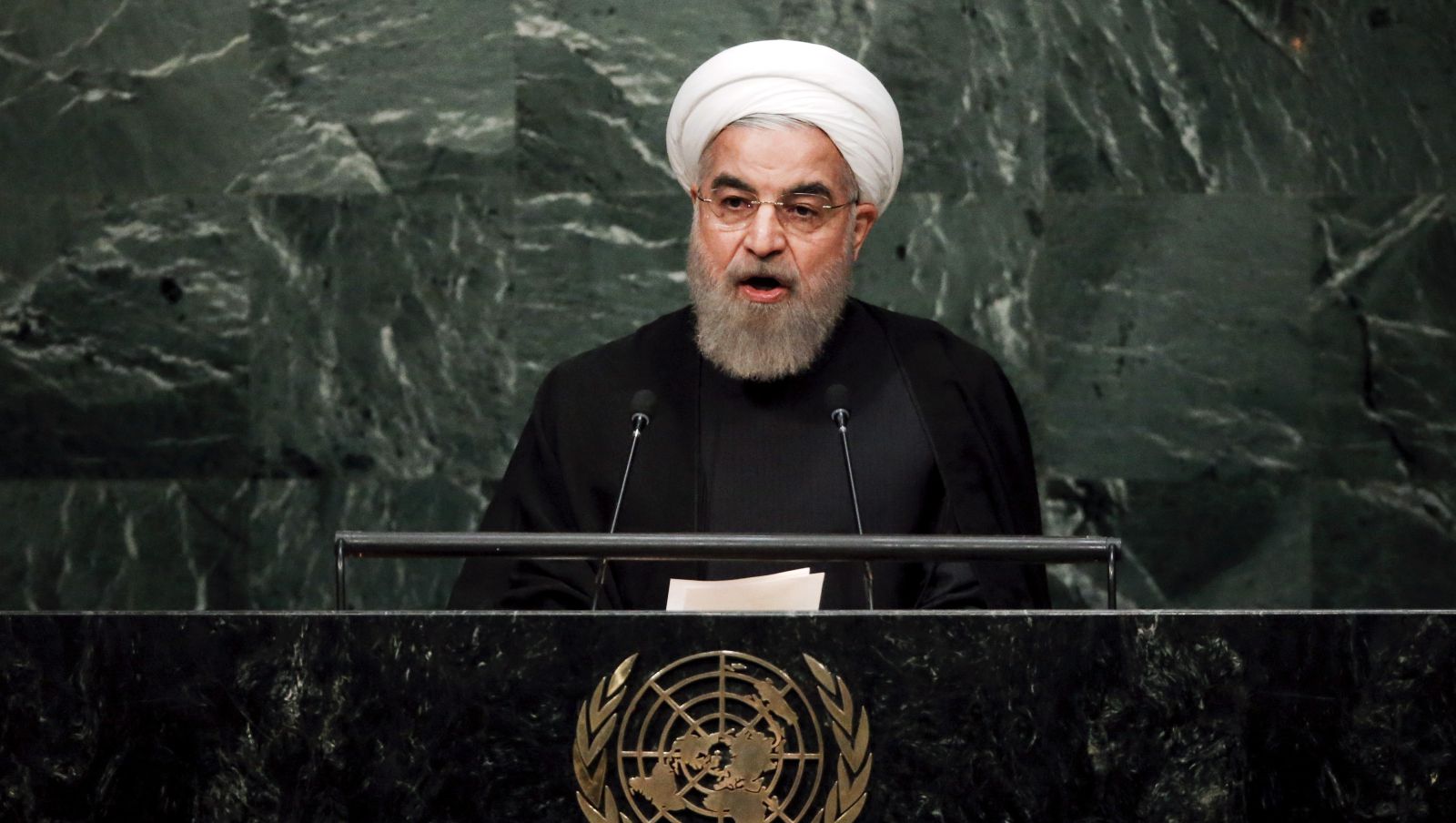Source: qz.com
By Ramin Ahmadi
In all my years as an Iranian-American, I have never heard so much discussion about Iran. In the halls of Congress, on the Sunday morning talk shows, at any number of academic and civil society events over the last several months, experts have analyzed, opined on, condemned and supported the international negotiations with Iran. Ahead of the UN General Assembly meeting in September–where President Rouhani is set to speak today, alongside other world leaders–it’s time for the voice of conscience to emerge from this din.
Now that the P5+1 and Iran have reached a nuclear deal, we need to pay more attention to Iran’s human rights crisis. It would be far too easy for Iran’s legacy of abuse and repression to slip by unnoticed once the spotlight dims on its nuclear program. How will the US leverage its renewed relationship with Iran to advance a human rights agenda? Will the international community continue to press Iran to protect the rights of minorities, journalists and dissidents? These are questions we need to hear answered by the US and other major players.
By all indications, the human rights situation in Iran has actually worsened since Rouhani took office in Aug. 2013. Rouhani campaigned as a moderate and promised to improve what he called “citizens’ rights.” Initially, the prospects that he would follow through on these pledges looked good. He made some overtures immediately after taking office, including releasing a handful of political prisoners before he attended the UN General Assembly in Sep. 2013 and wishing a happy new year to Iran’s Jewish community on Twitter.
Yet, human rights advocates worry that this rhetoric has lulled the international community into a false sense of security for the remainder of Rouhani’s tenure. Even a cursory look at the facts on the ground demonstrates that fundamental rights in Iran have deteriorated on his watch. Executions have jumped dramatically, including for juveniles and those convicted of less serious crimes, such as drug possession. Women have been the victims of a wave of acid attacks, to which lawmakers responded with a bill that would further empower officials to police Islamic dress. The government continues to jail journalists, among them Washington Post reporter Jason Rezaian. And ethnic and religious minorities have faced increased persecution. In March of this year, Iran again went before the UN Human Rights Council, where Ahmed Shaheed, the Special Rapporteur on Iran, noted that conditions in Iran are deteriorating, despite Rouhani’s pledges to make improvements.
In particular, Iran’s largest religious minority, the Baha’i community, which I have previously argued are an important barometer for the freedom of Iranian society, have faced intensifying repression. The numbers of Baha’is in prison reached a twenty-year high of 136 last year, and several violent attacks against Baha’is have gone uninvestigated. The government has stepped up its crackdowns on Baha’i-owned businesses, and state-sponsored hate propaganda against Baha’is has increased significantly.
Some analysts suspect that these escalating abuses have been carried out by hardliners, presumably on the orders of the Supreme Leader, in order to undermine President Rouhani in the nuclear negotiations. Yet, there are a number of abuses that have been carried out by agencies for which Rouhani is responsible. But regardless of what is happening behind the scenes in Iran’s opaque and byzantine governmental structures, the fact remains that Rouhani has not even spoken out against many of these abuses. Whether or not he can prevent or remedy them, he has at least tacitly consented to them through his silence.
So why has Rouhani failed to even partially deliver on his campaign promises? It would be easy to conclude that Rouhani decided that he must expend his political capital on the nuclear negotiations, and that, by staying silent in the face of human rights abuses, he projects “strength” and appeases the hardliners at home. But what Rouhani fails to understand is that silence in the face of human rights abuses is not a sign of strength; it is a sign of weakness. The people of Iran know right from wrong, and they will respect and appreciate the strength it takes to help Iran advance by showing leadership on human rights. Rouhani must speak out for the rights of Iran’s citizens, and responsible nations must continue to raise this issue with his government.
At the UN General Assembly this fall, the international community must ensure that, irrespective of the outcome of the nuclear deal, it holds Iran accountable for the rights and freedoms of all its citizens.
We welcome your comments at [email protected].

September 30, 2015 5:20 pm
Hassan Rouhani and every other president of Iran are baby wolves who follow their Supreme Wolf Leader (Khamenei). A wild blood thirsty wolf can never become a peace loving lamb. The other world leaders are very well aware of this, and want to use Iran for their own financial and material politics and benefits in the Middle East. Unfortunately, the first victim of the Materialist world powers is the Human Rights of innocent people who have no part in this vicious game of politics and greed. Most of the leaders attending the UN Summit are players in this same game.